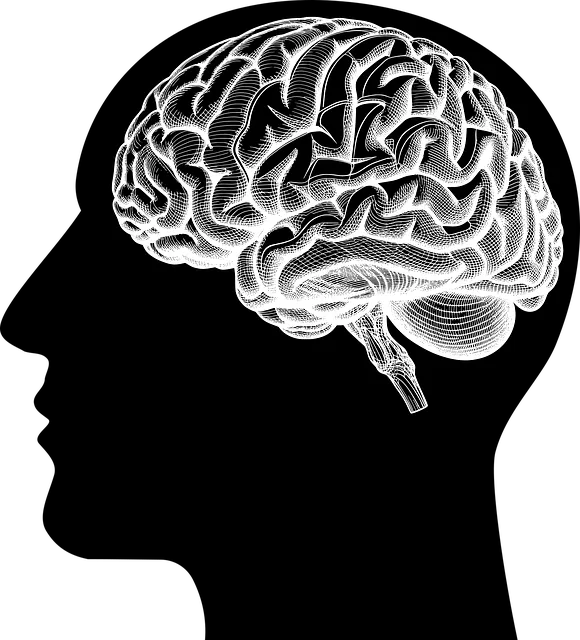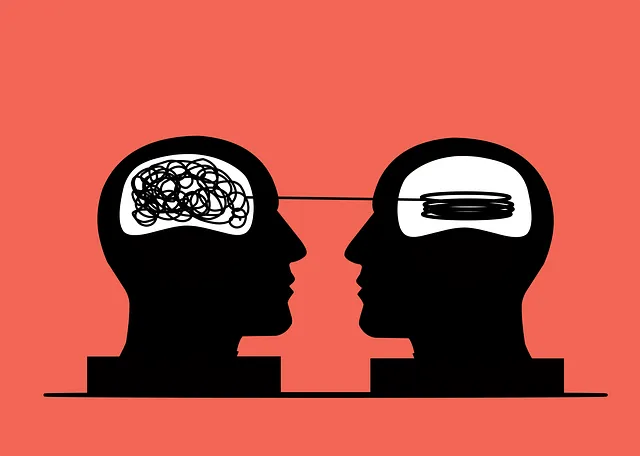The Kaiser Permanente behavioral health center in Longmont prioritizes Emotional Intelligence (EI) as a cornerstone of patient care, focusing on stress management, relationship building, and destigmatizing emotional health issues. They employ active listening, non-verbal cues, and emotion validation to foster empathy within their center. With cultural competency training, EQ enhances patient outcomes for diverse patients. Practicing mindfulness and self-reflection improves personal and professional lives, while empathy strengthens relationships through deeper connections and open dialogue. The center advocates for stress management techniques like meditation and deep breathing for emotional regulation, calmness, and enhanced decision-making in stressful situations.
Emotional intelligence (EQ) is a powerful tool for enhancing mental well-being, as evidenced by the successful programs at the Kaiser Permanente Behavioral Health Center in Longmont. This article explores the key components of EQ development through various sections. We’ll delve into understanding emotional intelligence from a holistic perspective, emphasizing its significance in mental health. Furthermore, we’ll provide practical steps to enhance self-awareness, build empathy, and incorporate mindfulness techniques for better emotional regulation, all backed by evidence-based practices adopted by Kaiser Permanente.
- Understanding Emotional Intelligence: The Kaiser Permanente Approach
- Unlocking the Potential: Why EQ Matters in Mental Health
- Practical Steps to Enhance Self-Awareness at Home and Work
- Building Empathy: Connecting with Others Through Emotional Intelligence
- Incorporating Mindfulness and Stress Management for Better Emotional Regulation
Understanding Emotional Intelligence: The Kaiser Permanente Approach

Emotional intelligence (EI) is a vital component of overall well-being and mental health, and organizations like Kaiser Permanente recognize its significance. The Kaiser Permanente behavioral health center in Longmont prioritizes EI development as a key aspect of patient care. They understand that EI involves recognizing, understanding, and managing one’s own emotions while also empathizing with and responding appropriately to the emotions of others. This multifaceted skill set is essential not just for personal growth but also for fostering strong relationships and effective communication.
The Kaiser Permanente approach to building emotional intelligence emphasizes both individual development and cultural sensitivity in mental healthcare practice. They believe that public awareness campaigns about EI can help destigmatize emotional health issues and encourage people to seek support. Additionally, their strategies for improving communication involve active listening, non-verbal cues, and validating emotions, all of which are integral parts of cultivating a culture of empathy and understanding within their behavioral health center.
Unlocking the Potential: Why EQ Matters in Mental Health

Emotional intelligence (EQ) is a powerful tool that can significantly enhance mental health and well-being, making it an essential aspect to focus on at Kaiser Permanente behavioral health center Longmont. By recognizing and understanding emotions, both one’s own and others’, individuals can develop coping mechanisms to manage stress and build resilience against mental health challenges. This is particularly crucial in today’s fast-paced world where burnout prevention among healthcare professionals is a growing concern.
At the Kaiser Permanente behavioral health center Longmont, we understand that cultural competency training for healthcare providers plays a vital role in improving patient outcomes. By integrating EQ into their practices, mental health professionals can enhance their ability to connect with diverse patient populations, ensuring effective communication and tailored care. Moreover, risk management planning for mental health professionals becomes easier when they possess high EQ, enabling them to navigate challenging situations with empathy and strategic decision-making skills.
Practical Steps to Enhance Self-Awareness at Home and Work

Building emotional intelligence is a transformative journey that can significantly enhance your personal and professional life. The Kaiser Permanente behavioral health center in Longmont offers valuable insights and resources for this process, emphasizing the foundational role of self-awareness. At home and work, individuals can take practical steps to cultivate a deeper understanding of their emotions and reactions.
One effective approach is to practice mindfulness, focusing on the present moment without judgment. This simple yet powerful technique allows you to observe your thoughts and feelings, enabling better control over reactive behaviors. Incorporating regular self-reflection exercises, such as journaling or meditation, can further strengthen self-awareness. By examining your emotions, triggers, and responses, you gain valuable insights into your mental landscape. These practices, guided by the Mind Over Matter Principles, contribute to Anxiety Relief and Self-Esteem Improvement, fostering a more balanced and resilient mindset both personally and professionally.
Building Empathy: Connecting with Others Through Emotional Intelligence

At the Kaiser Permanente behavioral health center in Longmont, experts emphasize that building empathy is a cornerstone of emotional intelligence and connecting with others. This involves actively listening to and understanding the feelings, experiences, and perspectives of those around us. By practicing empathy, individuals can foster deeper relationships, improve communication, and create a more supportive environment.
Empathy-building strategies taught at Kaiser Permanente behavioral health center in Longmont include cultivating mindfulness, engaging in open dialogue, and promoting active compassion. These practices not only enhance interpersonal connections but also contribute to emotional healing processes and burnout prevention, creating a healthier and happier community.
Incorporating Mindfulness and Stress Management for Better Emotional Regulation

Incorporating mindfulness and stress management techniques is a powerful strategy for enhancing emotional intelligence and regulation, as recommended by experts at the Kaiser Permanente behavioral health center in Longmont. These practices allow individuals to cultivate a deeper understanding of their emotions, enabling them to respond rather than react impulsively. Mindfulness, in particular, encourages people to focus on the present moment, observing thoughts and feelings without judgment, which can significantly reduce stress levels.
By adopting mindfulness practices such as meditation or deep breathing exercises, one can develop better coping skills for managing intense emotions. This is especially beneficial in stressful situations, helping individuals make more thoughtful decisions. Additionally, integrating stress reduction methods into daily routines can foster a sense of calm and emotional balance, ultimately enhancing overall well-being. The Kaiser Permanente behavioral health center promotes these techniques as essential components of their Healthcare Provider Cultural Competency Training, recognizing the positive impact on both personal and professional interactions.
Emotional intelligence, as demonstrated by the comprehensive approach of the Kaiser Permanente Behavioral Health Center in Longmont, is a powerful tool for enhancing mental well-being. By understanding and cultivating skills through self-awareness, empathy, mindfulness, and stress management, individuals can navigate life’s challenges more effectively. The benefits are far-reaching, fostering healthier relationships, improved decision-making, and enhanced overall resilience. Incorporating these practices into daily routines, as highlighted in this article, empowers folks to embrace their emotional intelligence potential, leading to a more balanced and fulfilling life.






